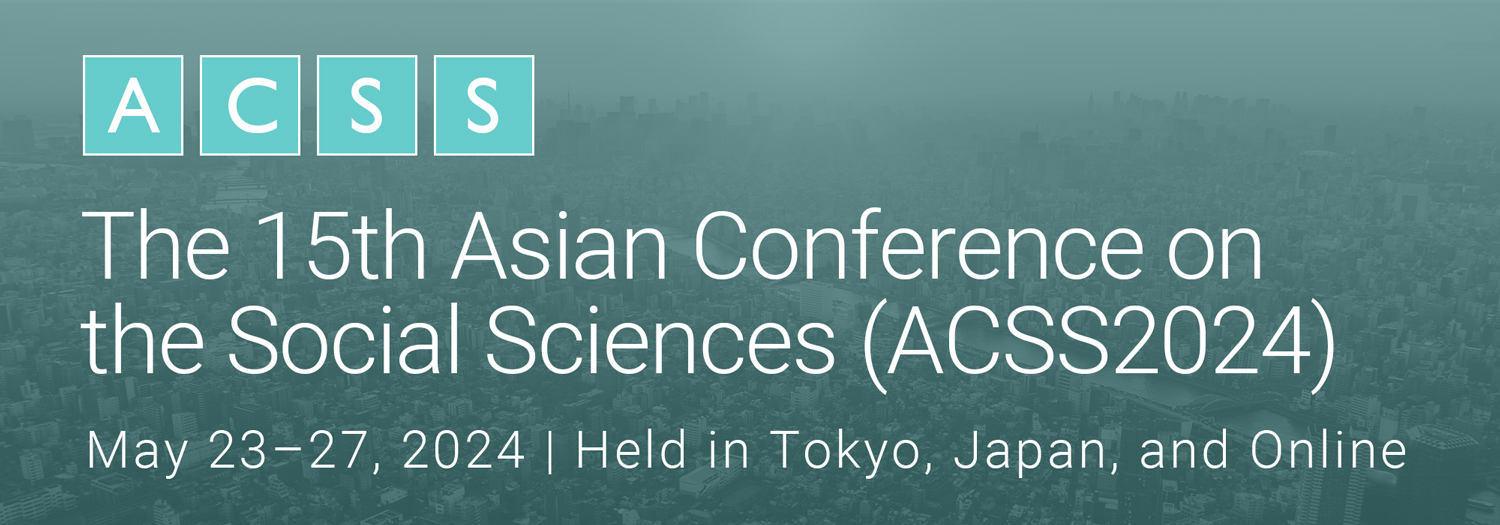“Working Together Towards a Sustainable World”
June 9–12, 2013 | The Ramada Osaka, Osaka, Japan
The Fourth Annual Asian Conference on the Social Sciences 2013 (ACSS) and Third Annual Asian Conference on Sustainability, Energy and the Environment 2013 (ACSEE) welcomed 280 delegates from around the globe to share, explore and discuss the conference themes of Sustainability, Society, Environment and Trust.IAFOR were pleased to have available as the conference keynote speaker, Professor Eric Uslaner of the University of Maryland (USA). Professor Uslaner is one of the world’s leading academics in the field of ‘Trust’. In his address titled ‘Segregation and Mistrust,’ Professor Uslaner emphasized that those countries promoting close personal ties within integrated diverse communities, build far greater levels of intra-community trust, than those countries whose policies promote multiculturalism and segregation into distinct in-group identities. The plenary session then transitioned to the Featured Speaker, Professor Thomas Simon from John Hopkins University in Nanjing, China. His topic ‘Future Governance and Disappearing Nations: Canaries in the Sustainability Mine?’ postulated on the refugee fallout and international legal consequences, from the loss of small island nation states through climatic and environmental change. Professor Simon in his address called for immediate international cooperation in dealing with, both the legal and human issues, before they escalated into more profound and intractable problems. The plenary session was closed by an energetic Taiko Drum performance by the students of Akutagawa High School from Osaka, who have won numerous awards and will next be performing in Europe.This years’ conference featured a strong line up of Spotlight Speakers. Dr Ernie Ko of the National Taiwan University of Arts presentation, ‘An INGO’s Development and Fission – A Case Study on Transparency International,’ was a fascinating behind the scenes look at the internal politics and personalities of a prominent global NGO and how this can affect the morale and direction of the organisation. His presentation was then followed by an extended IAFOR lead discussion session titled, ‘Sustaining Good Governance in the 21st Century through Trust and Transparency’. IAFOR wishes to thank Dr Ernie Ko, Dr Lillian Woo, Professor Stuart Picken and Dr Alex Petrisor for their insights and contributions during this session. Dr Joseph Wunderlich from Elizabethtown College (USA) began the Saturday Spotlight Session with his presentation on recent trends in green architecture and environmental design by relating his experiences using ‘Sandbox,’ a social network based rapid prototyping tool. Dr Wunderlich revealed the advantages of how new technologies can greatly assist in the modeling and creation of sustainable architecture. Emeritus Professor John Regan of Texas A&M University closed the Spotlight Session speaking on innovation through syntactic manipulation. Professor Regan demonstrated how individuals can learn to make sense of any new situation they encounter and then create from seemingly opposite characteristics, a single innovative new idea. Though many artists have intuitively used this syntactic manipulation approach, Professor Regan believes that researchers and educators can themselves harness this interdisciplinary process to create new and innovative directions.The featured speaker for the conferences’ closing ceremony was IAFOR’s Advisory Board Vice Chairperson Professor Jerry Platt from Akita International University (Japan). Professor Platt’s spirited and well received critique of the inconsistencies and foibles of University ranking, used humour, reminiscences of college football, and sound statistical analysis to bust much of the criteria and bias used in formulating these widely quoted ranking systems that have become the bane of many University departments. Earlier on Sunday delegates got the opportunity to try the ancient art of Japanese Calligraphy during a workshop held by Art Students from Ritsumeikan University from Kyoto. It was a unique chance for delegates to take home their own creative souvenir from ACSEE/ACSS 2013.
IAFOR would like to thank the IAFOR Advisory Board and Conference Chair, Reverend Professor Stuart Picken, the Osaka Conference Organising Committee, and the Conference Programme Advisers Drs Alex Petrisor and Andrea Molle for their continued and committed academic support and guidance, as well as all the participants that attended ACSEE/ACSS 2013. We look forward to seeing you again next year!
